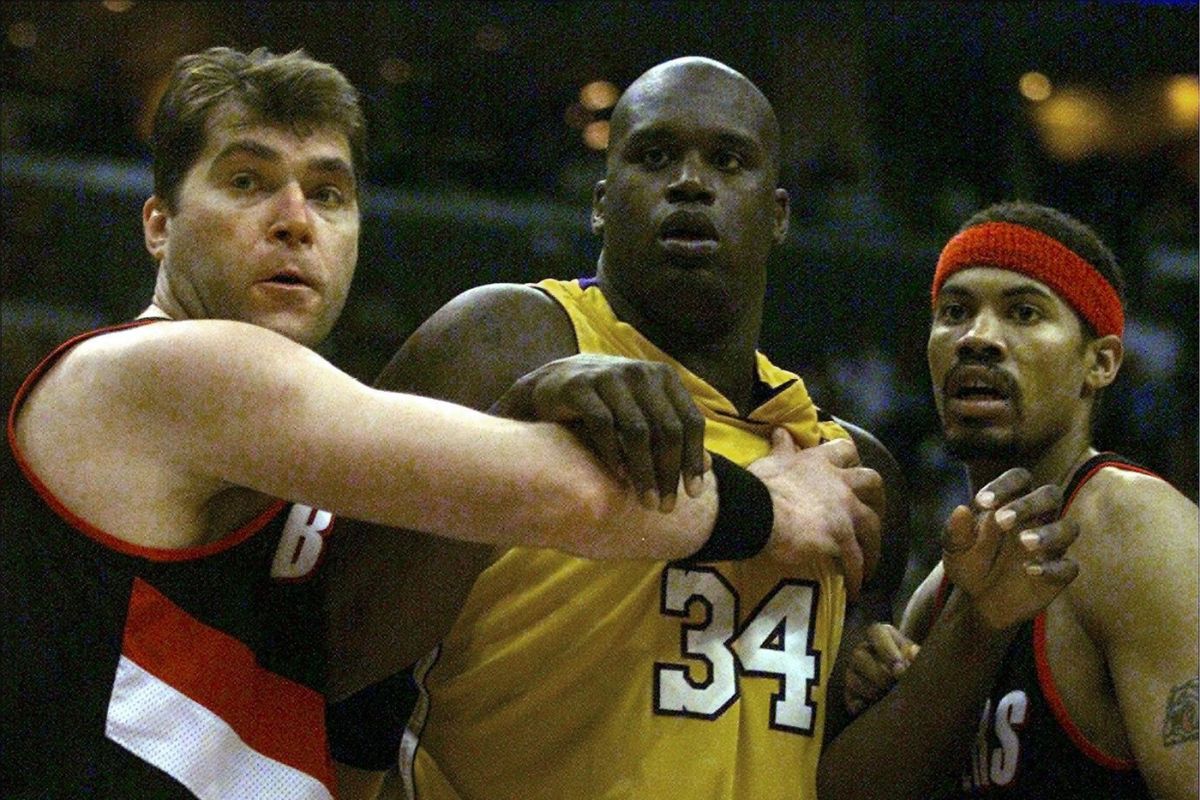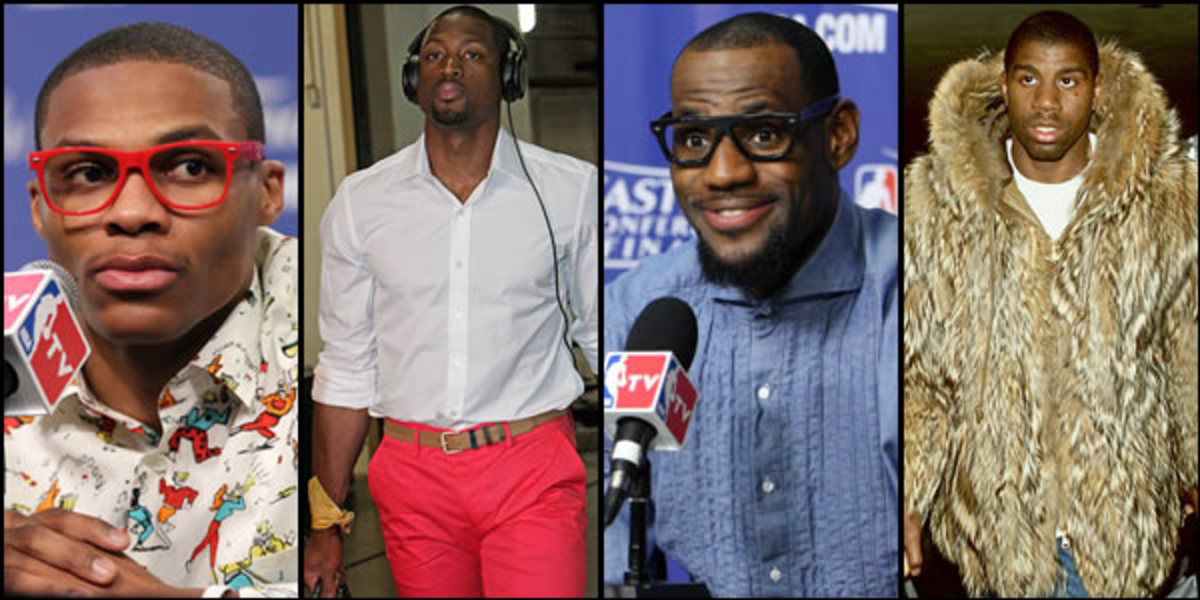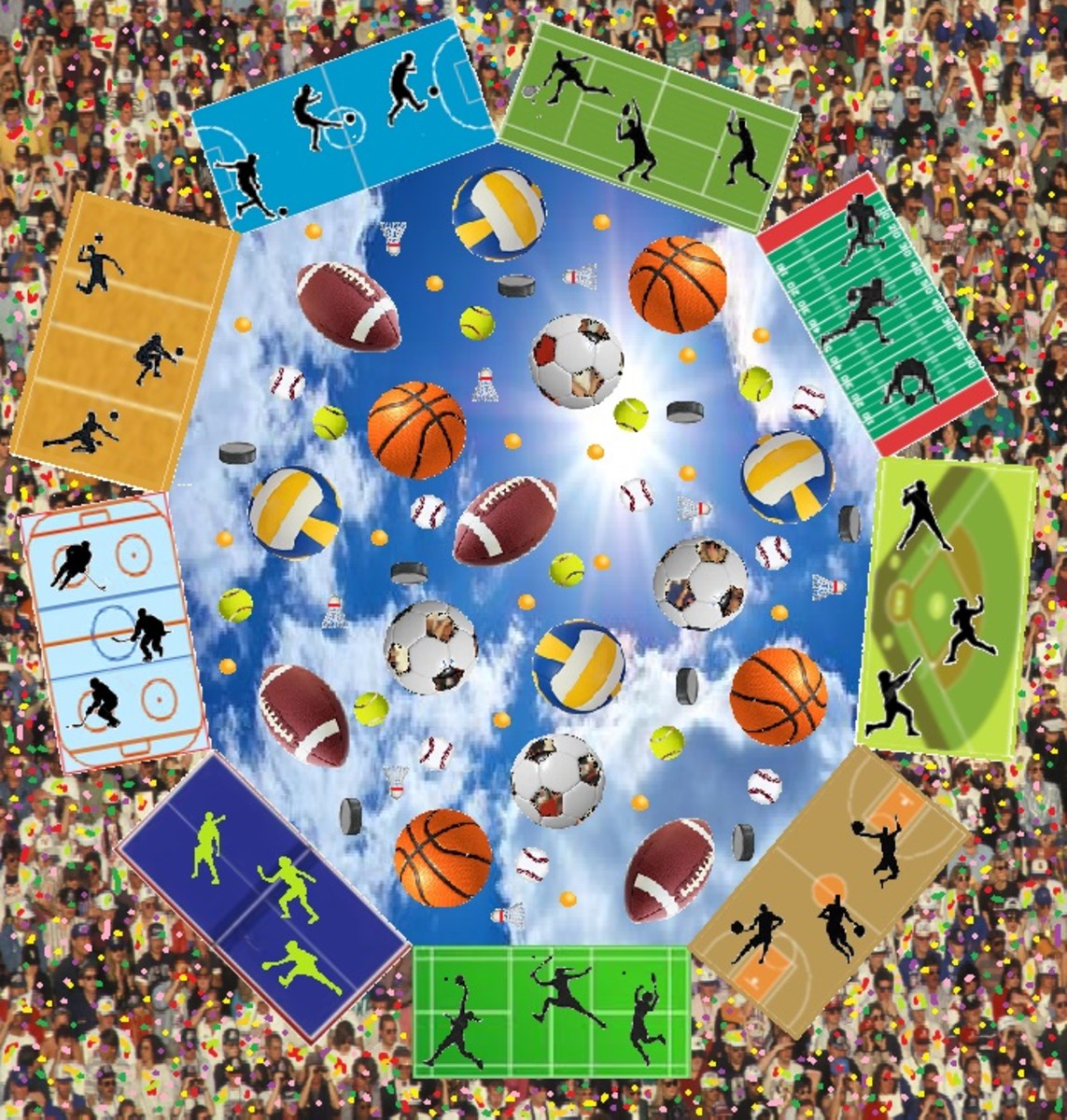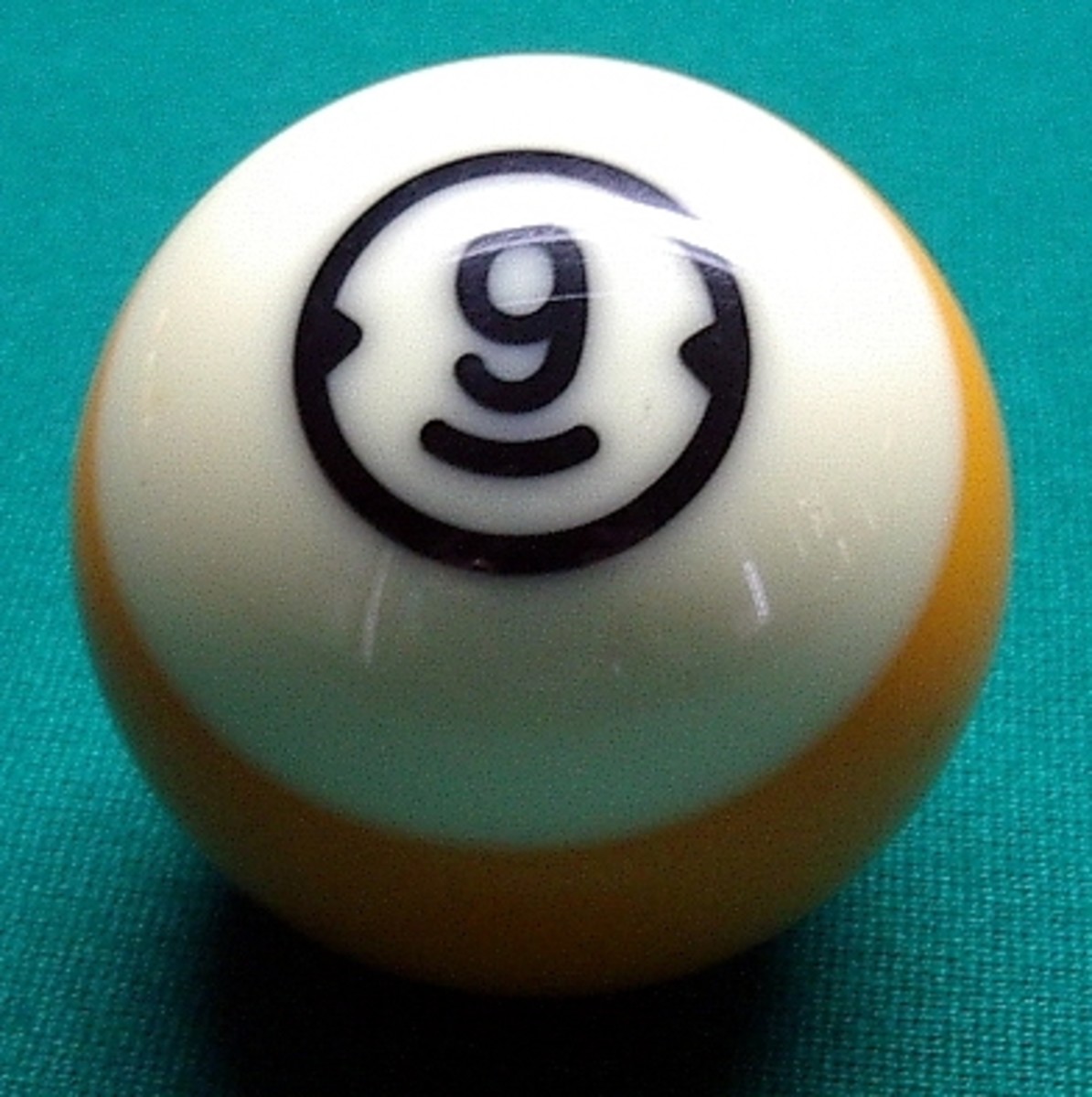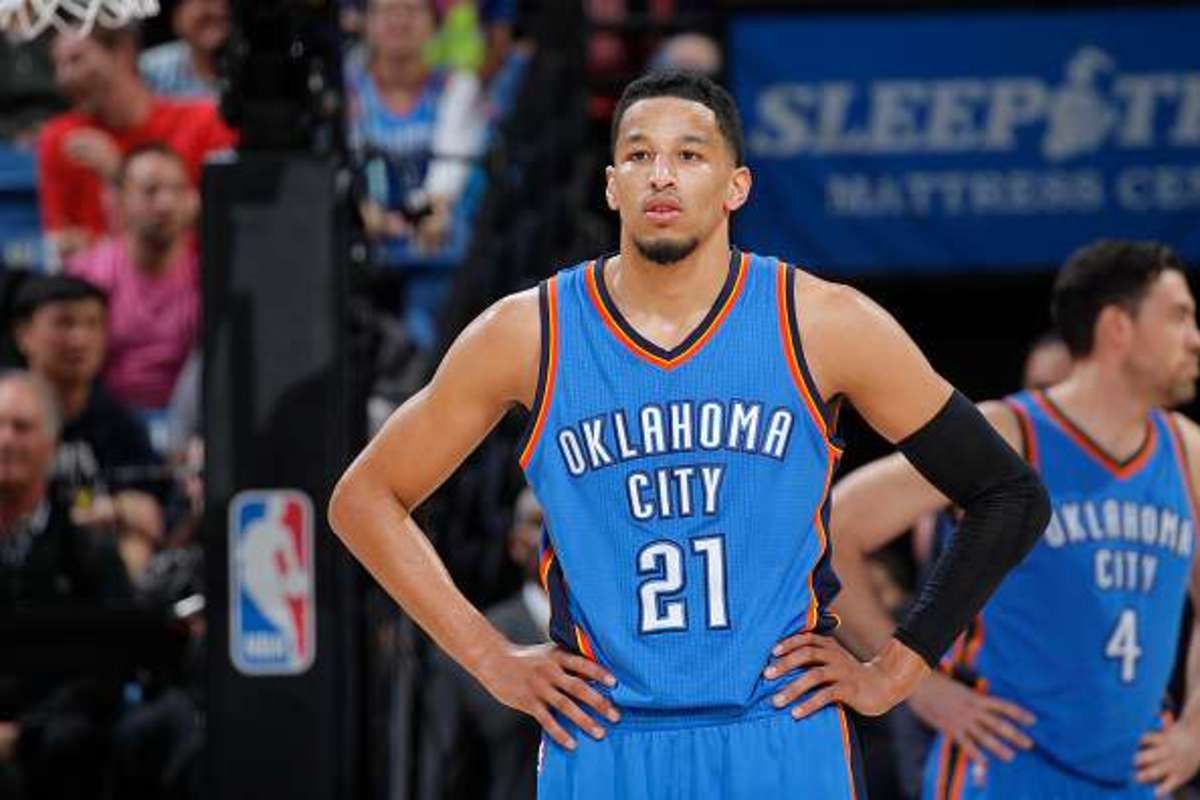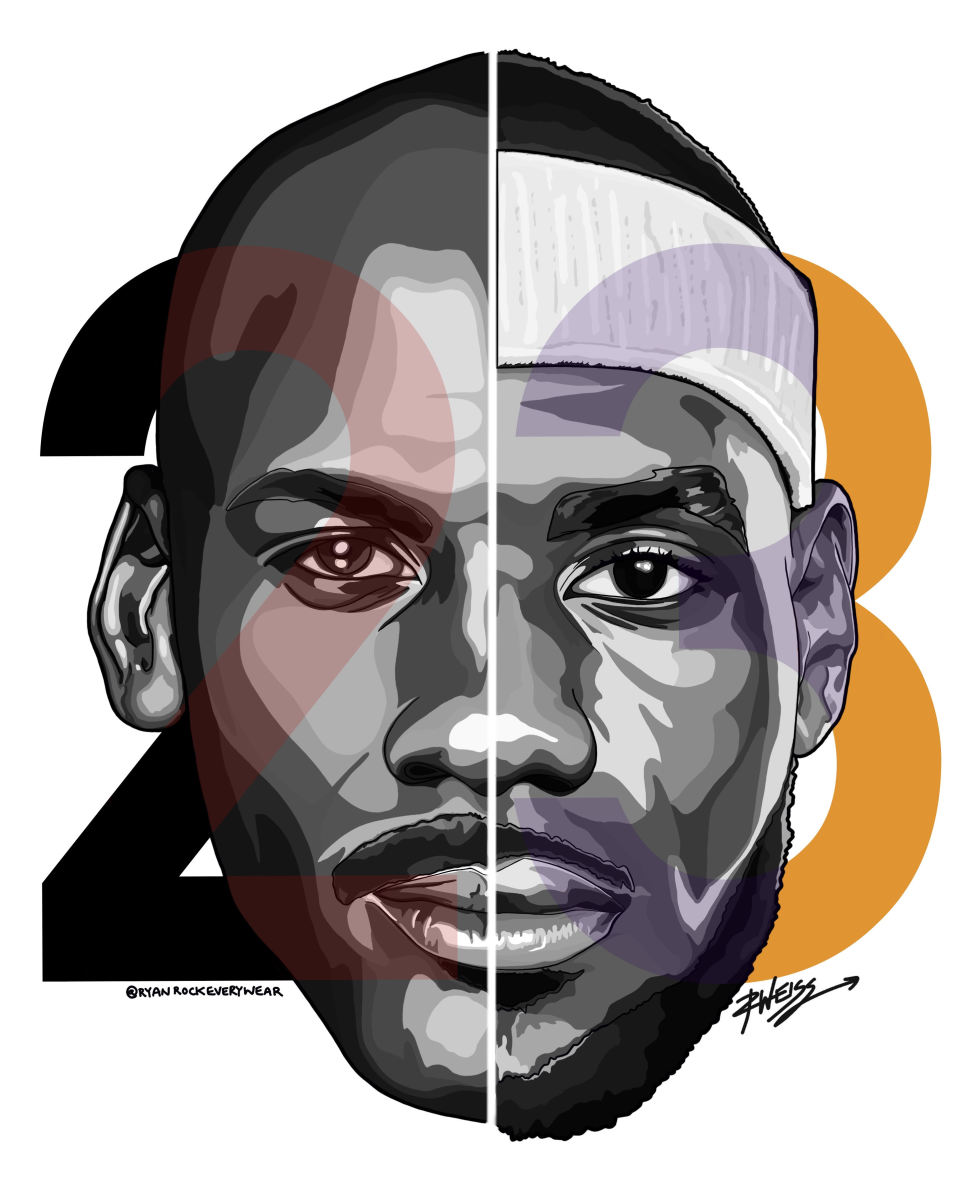Taking the game back from referees
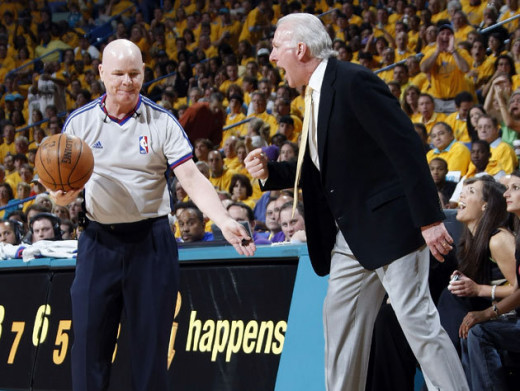
Let me start out by putting this on the table: I am a die-hard Portland Trail Blazer fan. This means that I hate the Lakers with the fire of a thousand suns. It also means that I have a big chip on my shoulder when it comes to referee bias towards Kobe Bryant and the rest of the Lakers. So I was pretty upset when a game between the Blazers and the Lakers was one of the most lopsided called games I’ve ever seen.
People who watch a lot of basketball tend to have an attitude that bad calls are usually balanced out. If they miss a hack, they’ll give a make-up call at the other end of the floor to make up for it. The NBA denies that this happens, but anyone with two eyes and a rudimentary understanding of basketball can see that it does. So theoretically the fairness of the game is maintained. Maybe the specifics aren’t fair (one player doesn’t get his free throws that he should have had while another gets called for a foul he didn’t commit), but it evens out down the road.
So the make-up call seems to fix a missed call, but what about a game tilted towards one team? What happens when a game is close and the referees seem to have little interest in providing make-up calls for their mistakes? This article is about poor officiating and how to fix it, but allow me to begin by indulging you with the most recent example of a badly called game.
First let me give you a couple of facts to think about. The NBA makes more money from television ratings when the Lakers play than any other team. The ratings are at their highest during the playoffs. The Lakers were three games back from the Rockets for the final seed of the playoffs. If the Blazers won the game, the Lakers would be bumped back to four games, and Portland (the smallest market in the NBA) would be ahead of LA in the standings.
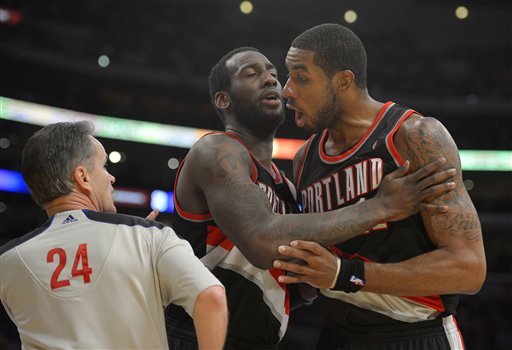
The game was tight all the way through. LaMarcus Aldridge picked up five fouls, three of which were pretty questionable. Aldridge gave a, “What?” look which immediately lead to him getting a technical foul. Steve Nash missed the shot and kicked the ball towards the referee without repercussion. Wesley Matthews arm was clawed as he shot a jumper from the free throw line and received a technical as he argued the no call. It got worse.
Meyers Leonard went up for a rebound and got hit in the back of the head. No call. Nicholas Batum was dribbling with his back to the basket. Metta World Peace hit Batum in the arm and mid-section as he lost the ball out of bounds. The referees watched the replay and awarded the ball to the Lakers. Batum tried to talk to one of the officials about the foul, but the referee gave him a look as if to say, “It didn’t happen.” A short while later Damian Lillard threw up a shot from beyond the arc and got hit by Bryant without a call from the referees.
Fourteen seconds were left in the game and the Blazers were down by four. Batum cut towards the corner and got the ball off the inbound pass. He squared up his feet just behind the three point line and drained it. The referee called it a two. The refs went in front of their monitor. The television camera showed that they were watching the same angles we had just seen. You could see a sliver of space between the foot and the three point line. They once again ruled it a two.
If the bucket had been properly ruled a three the Blazers could have quickly fouled the Lakers, and could gone to overtime if they sunk both shots followed by Portland hitting a trey. Instead they had to foul and found themselves down by four. The Blazers got the ball to Lillard for three again, and he was blatantly smacked on the top of the head by Bryant. Instead of getting thee shots and a shot of going to overtime the Lakers prevented a score and won the game.
So here’s the real problem. There are two scenarios for what happened with the referees. The first is that they threw the game. Maybe it was decided by David Stern and company that if the game was close that they would push the game in the Lakers direction. Maybe someone had money on the Lakers and paid off the referees. Or maybe the refs just had grudges against a couple of the Blazers. The second scenario is that they were incompetent calling this game. They were given two replays and still blew the calls. That just screams that they shouldn’t be calling any game, let alone a professional one.
Are there any NBA fans who don’t believe that the referees unfairly influence the game? Tim Donaghy got busted calling extra fouls and letting a bookie know which games he was refereeing ahead of time so that he could always bet the over on those games. He also said that referees had it in for certain players. Allen Iverson had gotten in an altercation with referees once, and they hounded him for the rest of his career. He also cited that he and his colleagues had a bet to see who could give Rasheed Wallace a technical foul the quickest. This resulted in Wallace giving a disbelieving look at a call and then being hit with the technical foul.
The NBA has an image problem with their officiating. Every time a game turns on an awful call the legitimacy of the game is called into question. The typical excuses for blown calls are that there are so many rules, and that they don’t want to ruin the flow of the game. I know how to circumvent both of these excuses while still calling a good game. If the league truly doesn’t predetermine outcomes of certain games then incoming commissioner Adam Silver should take my advice. I won’t bother with Stern since I saw how he reacted to the last crisis by giving lots of talk and absolutely no action.
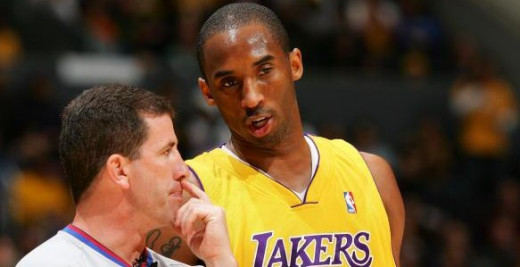
Shorten the rule book. There are a lot of unnecessary rules in the NBA. This is a league where players can turn on a dime in a spit second. Do you really need a charge circle to ensure people get to the rim? Nearly everyone can knock down open jumpers. Do you need three second calls in the key? This is a simple game that has been made overly complicated by a giant rule book. The game would be a lot better off if we went back to John Naismith’s original thirteen rules, and minimally tweaked them. Watch, here’s you new rules NBA:
1. The ball may be thrown or batted in any direction with one or both hands, but never with the fist.
2. A player with the ball cannot run beyond two and a half steps without dribbling. Once a step is taken he may not dribble. Dribbling with both hands striking the ball at the same time will not be allowed.
3. No shouldering, holding, pushing, striking or tripping in any way of an opponent. Each infraction will be ruled a foul, and six fouls will take a player out of the game. Any of these violations while a player is shooting will result in two free throws; three if he was shooting a three point shot. Any other violation will result in the violated team inbounding the ball.
4. A goal shall be made when the ball is thrown or batted from the grounds into the basket and stays there, providing those defending the goal do no touch or disturb the goal. If the ball rests on the edges, and the opponent moves the basket, it shall count as a goal. If an opponent hits the ball on its path down towards the basket, it shall count as a goal.
5. A goal from the field counts as two points, and beyond the three point line it shall count as three. Free throws will count as one point a piece.
6. When the ball goes out of bounds, it shall be thrown into the field and played by the first person touching it. A ball being kicked will also result in the ball being counted as out of bounds by the kicker. In case of dispute the referee shall throw it straight into the field. The thrower-in is allowed five seconds. If he holds it longer, it shall go to the opponent.
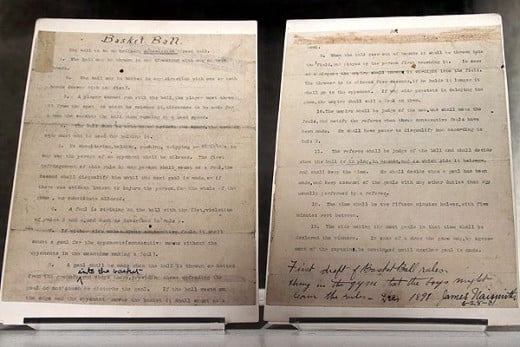
6. When the ball goes out of bounds, it shall be thrown into the field and played by the first person touching it. A ball being kicked will also result in the ball being counted as out of bounds by the kicker. In case of dispute the referee shall throw it straight into the field. The thrower-in is allowed five seconds. If he holds it longer, it shall go to the opponent.
7. The referee shall be judge of the ball and shall decide when the ball is in play, in bounds, and to which side it belongs. He shall decide when a goal has been made and keep account of the goals, with any other duties that are usually performed by a referee.
8. A team will have twenty-four seconds to make a basket. Violation of this gives the other team the ball. If the ball touches the rim, the twenty-four seconds will be reset.
9. The time shall be four fifteen minute quarters with a fifteen minute break between the second and third quarters.
10. The side with the most points in that time shall be declared the winner.
Look at that. I just cut down Naismith’s rules from thirteen to ten. The game would be playable, and there was no sixty-five page pdf file needed.
Completely do away with technical fouls. Did a player get too rough? Fines and suspensions always do the trick. Did someone talk nasty to the referee? Slap microphones on the refs. The NBA can review the audio and fine appropriately. Was there an illegal defense? Not anymore, didn’t you read the ten rules? There is no longer any reason to have technical fouls. We’ve just limited the amount of damage a crooked or incompetent referee can cause.
Hold referees accountable in a real way. Hire twenty more officials than you need and employ them on a game by game basis. Then set up an organization that reviews every game and tabulates the number of bad calls or no calls. The bottom twenty gets to officiate less frequently then the rest do. At the end of the year the bottom five can file for unemployment. The referees really won’t like these suggestions, and they’ll strike after their next collective bargaining agreement. Bring in scabs, because there are only ten rules now and junior high referees could follow them.
So the balls in you court Adam Silver. You can continue down this path your predecessor has chosen. The officiating will get worse, and maybe someday the NBA will fail because the fans are sick of it. Or you can take real sweeping action. And by the way, if you follow my new rules, you just made a new era basketball. That means new records are broken every day. Isn’t that a way to compensate for lost Los Angeles TV revenue?

